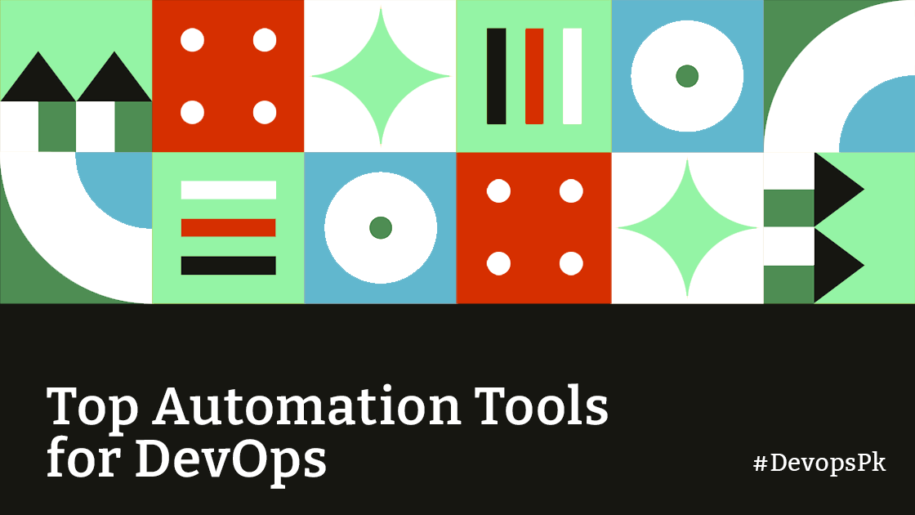DevOps refers to creating collaboration between development and operations staff to improve productivity and reduce errors. However, DevOps automation utilizes pre-built tools to reuse the workflow of development and operations. It automatically responds to the events occurring from development to deployment, reducing human effort and fastening deliveries.
Table of Contents
You can deploy these automation tools for DevOps at any stage of the DevOps pathways. Be it fixing codes, speeding up deliveries, responding to events, or any other task, you can automate any task of the DevOps operation. However, you need to consider some important aspects while choosing the best DevOps automation tool for your business.
What Are the Key Features of a DevOps Automation Tool?
While there are a large number of automation tools for DevOps in the market, you need to consider four essential features in a tool before making a decision. These features are:
Easy-to-Install
A suitable DevOps automation tool should be easy to set up. Otherwise, you will require to craft your automation scripts from scratch in case of complex installation. Most DevOps processes have on-premise execution, which is another factor you should consider to choose the best tool.
Consider Flexible Integration for Choosing the Right Automation Tools for DevOps
Remember, the tool you choose should have integration flexibility because you will need to integrate the tool with your existing software stack, including development tools and the entire production environment. The ideal automation tool should integrate continuous integration/development (CI/CD) products.
Extensive Compatibility
Make sure the tool has compatibility with all public clouds and virtual machine providers. Your tool should be able to work with multiple coding languages in different production environments. Your development teams might use different programming languages like Python, Java, Ruby, Node, etc. So, ensure your automation tool meets your organizational needs and offers widespread compatibility.
Automation Tools for DevOps Should Be Scalable for Enterprise Use
Make sure your automation DevOps tools should be enterprise-ready. Different teams and stakeholders in your organization should be able to use the tool meaningfully. Further, the tool must be able to adjust to complex environments. Most small companies acquire automation tools at the early stages of growth. However, this might create an issue in the future if the tool is not scalable.
Top DevOps Automation Tools
The DevOps model requires effective tools to automate the process, increase productivity, and quicken deliveries. Here is the list of automation tools for DevOps that your business needs:
1. Docker
Docker is an open-source platform for Linux users. It is a suite of DevOps tools that containerizes environments for apps, making them more secure and portable. With Docker, DevOps can run its applications faster with more productivity. Plus, Docker allows organizations to reduce their infrastructure costs.
2. Kubernetes
It is a container orchestration platform and the right choice among DevOps engineers. This platform manages containers on a large scale and works best with Docker. This tool automates the functions of hundreds of containers.
3. Raygun
Raygun is a monitoring tool that tracks an application’s performance and ensures efficient development. This tool helps DevOps to identify issues and resolve them quickly. This tool automates the entire monitoring process, providing excellent monitoring and error-free reports.
4. Ansible
It is an agentless management tool that automates configuration and allows your teams to ensure easy deployment and continuous deliveries. This tool can automate several tasks, including application deployment, cloud provisioning, and intra-service orchestration.
5. Bamboo
Bamboo is another automation tool with pre-built functionalities, enabling you to manage a few plugins. This tool offers a highly-intuitive interface, providing value and saving time.
6. Jenkins
Jenkins is an open-source integration platform that automates the development cycle of an application, providing more customized functions. With this tool, developers can automatically fix codes, run testing, and fetch reports. Most importantly, this tool can integrate with every DevOps tool, automating the complete software development lifecycle.
Conclusion
As DevOps technology is currently the default methodology for the development, maintenance, and infrastructure of applications, DevOps engineers need to automate tasks for quick and productive deliveries. With the help of the above-mentioned automation tools for DevOps, your organization can improve the development process and provide customer value.


Leave a Reply